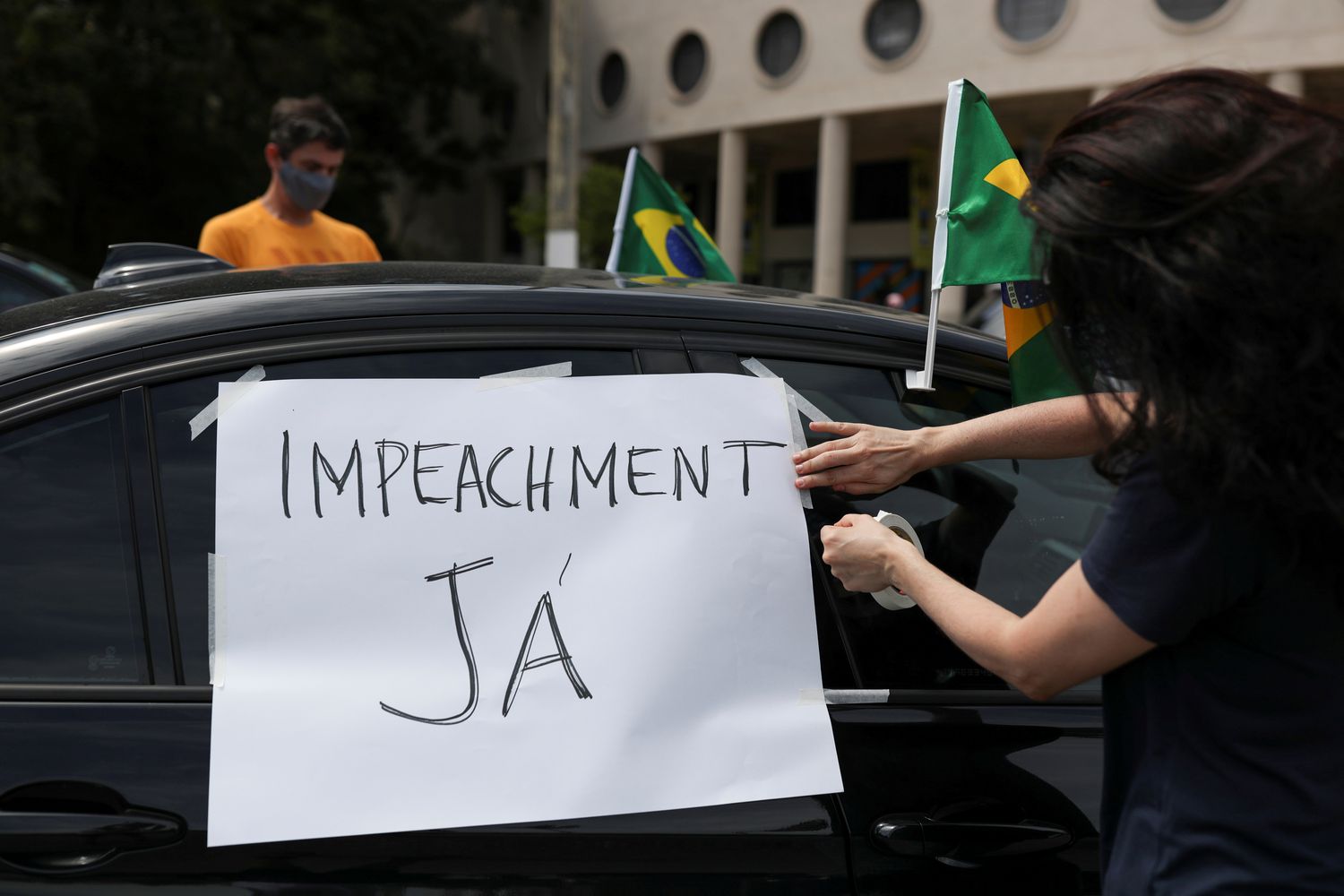RIO DE JANEIRO, BRAZIL – The figure is the result of an Atlas survey released on Sunday, January 24th, when motorcades emerged in capitals such as São Paulo and Rio de Janeiro calling for the President’s removal from office.. Meanwhile, the issue is once again gaining attention in Brasília amid the surge in the pandemic and the oxygen crisis in Manaus.
Support for impeachment – which is spreading in all regions and income brackets, but stronger among women and in the Northeast – is at its highest level since May, when it reached 58%.
“We are closely monitoring this figure and there is volatility, but there seems to be stability in this higher level of support for impeachment,” analyzes Andrei Roman, Atlas’ CEO, commenting on the survey which has an error margin of two percentage points plus or minus and which closed interviews on Sunday.
“53% is still a very close limit between a majority or no majority. If that figure reaches 60%, then we can talk about a strong majority that puts pressure on Congress as it did with Dilma Rousseff,” adds Roman.
Current Chamber president Rodrigo Maia, who holds the power to examine impeachment petitions that come before him, so far has said he will not do so. On February 1st, the Chamber will elect its new leader. The two main names are Baleia Rossi (MDB), supported by Maia and the opposition, and Arthur Lira (PP), supported by Bolsonaro – neither one has committed to analyzing the impeachment petitions, thus rendering the public opinion factor even more decisive on the issue.
On Sunday, Baleia Rossi referred to the issue and called on his opponent on Twitter: “The commitment is to comply with the Constitution. As president, I will not abandon my duties. I will analyze impeachment petitions fairly. Why? Would Arthur Lira shelve them without fulfilling his role with independence? Is there anything arranged between the Planalto and Lira in this respect?”
The Atlas survey, which should disclose the President’s approval rate and scenarios for the 2022 presidential elections in coming days, shows three cornerstones of Bolsonarism resilience at this time: the poorest, men, and evangelicals. If among the general population support for impeachment reaches 53%, among the evangelicals this figure drops to only 35%, among men it drops to 43%, against 64% support among women. “It is among evangelicals that Bolsonarism is particularly resilient because several factors are combined, social and cultural,” says Roman.
The numbers also show how Bolsonaro lost support among the wealthiest, an essential slice in paving the way for his election victory in 2018. For those with a monthly income of over R$10,000, support for impeachment stands at 63%, almost the same as those supporting the fall of the President in the Northeast (62% against 46% in the North, for instance).
“When the wealthiest support impeachment, it’s only logical that the issue will gain greater visibility because they have more influence in the media, in the productive sector,” says Roman. One of the main questions in the coming weeks is at which speed will the poorer segment maintain support for Bolsonaro, since the emergency aid ended in December.
The crisis in Manaus has also been a significant political factor in recent days. It was the trigger for the first big pots-and-pans protest in months against the President; the term “impeachment” has increased in internet searches.
It was also in this wake of setbacks in the management of the pandemic, which includes delays in the vaccination campaign, that new street rallies supporting the President’s removal began to emerge. There were motorcades on Saturday in capitals such as São Paulo, Rio, Belo Horizonte and Fortaleza organized by the opposition and left-wing groups.
On Sunday, new motorcades, this time led by right-wing groups, were held at least in São Paulo and Rio. The highlight was the involvement of groups that were key players in the mobilization for Dilma’s removal: the MBL (Free Brazil Movement) and Vem Pra Rua (Come to the Street). The initiatives were moderate.
The Atlas survey was conducted between January 20th and 24th, with 3,073 interviews through random online questionnaires.


